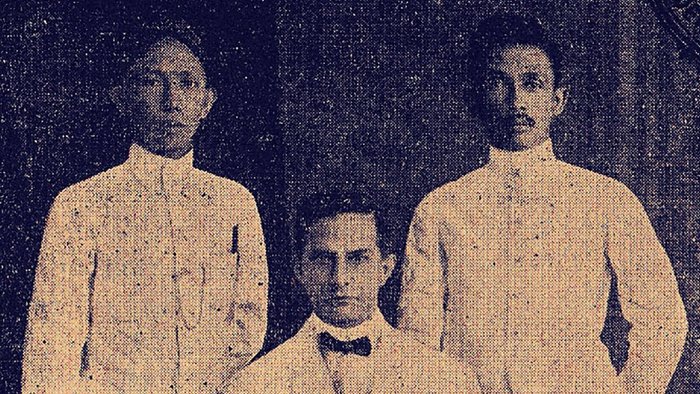Ki Hajar Dewantara: Father of Indonesian Education
Ki Hajar Dewantara is a well-known figure in Indonesian history as the father of Indonesian education. He an activist for Indonesian independence and a pioneer in education for the indigenous people of Indonesia.
Biography
Ki Hajar Dewantara born on May 2, 1889, in Yogyakarta, Indonesia. He born into a noble family, but he a humble man who close to the people.
Ki Hajar Dewantara attended the Europeesche Lagere School (ELS), a Dutch elementary school, for seven years in Yogyakarta. This school only for children of European descent.
After graduating from ELS, Ki Hajar Dewantara received a scholarship to study medicine at STOVIA, a medical school. However, he did not complete his studies due to poor health.
Ki Hajar Dewantara then began a career as a journalist and writer for several newspapers, including Sedyotomo, Midden Java, and De Express. One of his most famous articles title “Als ik een Nederlander was” (If I Were a Dutchman).
This article publish in Douwes Dekker’s newspaper De Express in 1913. The article write in protest of the Dutch government’s plan to collect donations from Indonesia to celebrate the Dutch independence from France.
Ki Hajar Dewantara, Cipto Mangunkusumo, and Douwes Dekker then founded the Indische Partij, the first political party in Indonesia, which aimed to unite the Dutch East Indies and fight for Indonesian independence.
The party active throughout the Dutch East Indies, garnering support from the people and spreading the idea of nationalism to end colonialism in Indonesia.
Ki Hajar Dewantara’s protests angered the Dutch, and he exile to the Netherlands.
Founding Taman Siswa
During his exile in the Netherlands, Ki Hajar Dewantara continued to fight for Indonesian independence and the rights of the Indonesian people. While in the Netherlands, he studied education and earned a European Acte certificate.
After his exile, on July 3, 1922, Ki Hajar Dewantara and his colleagues founded Taman Siswa.
Taman Siswa a school that found to provide education and instill a sense of nationalism in the indigenous people of Indonesia.
From his experience in fighting for independence, Ki Hajar Dewantara believed that the struggle for independence must be based on a sense of nationalism that is instilled from childhood. This the initial goal of Taman Siswa.
As one of the leading educational institutions in Indonesia, Taman Siswa laid the foundation for the national education system and instilled the values of nationalism in the Indonesian people.
Ki Hajar Dewantara’s Contributions
Ki Hajar Dewantara’s contributions to Indonesian education and independence are immense. He is considered to be one of the most important figures in Indonesian history.
Trilogy of Ki Hajar Dewantara
As an educator, Ki Hajar Dewantara created a trilogy of slogans or concepts that are the foundation of education in Indonesia. These concepts are as follows:
Ing Ngarso Sung Tulodo
The first concept of Ki Hajar Dewantara’s trilogy is Ing Ngarso Sung Tulodo, which means that a teacher or educator who is in front should be a role model for their students.
In this case, an educator should set a good example for their students so that the students can learn by imitating the behavior of their teacher or educator.
Ing Madya Mangun Karsa
The second concept of Ki Hajar Dewantara’s trilogy is Ing Madya Mangun Karsa. This slogan means that one who is in the middle builds desire. A teacher or educator who is in the middle of the students should be involved in all aspects of learning to achieve common goals.
In other words, this slogan is closely related to the attitude of an educator when they are among their students. An educator should be able to be a friend who can support their students by providing motivation and encouragement to achieve their goals.
Tut Wuri Handayani
The last concept of Ki Hajar Dewantara’s trilogy is Tut Wuri Handayani, which means that one who is behind provides encouragement. The educator provides encouragement for the students to develop their talents according to their wishes.
In other words, educators should provide space for students to freely express themselves and explore in achieving their desired goals.
Conclusion
That is the story of Ki Hajar Dewantara’s life and his struggles to achieve independence and advance the Indonesian education system.
